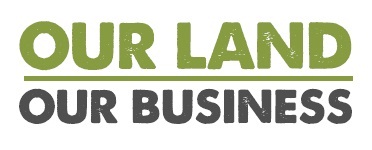Source: Business Standard
January 13, 2018
Josh Zumbrun & Ian Talley | WSJ
The World Bank’s chief economist said he would recalculate national rankings of business competitiveness going back at least four years
The World Bank repeatedly changed the methodology of one of its flagship economic reports over several years in ways it now says were unfair and misleading.
The World Bank’s chief economist, Paul Romer, told The Wall Street Journal on Friday he would correct and recalculate national rankings of business competitiveness in the report called “Doing Business” going back at least four years.
The revisions could be particularly relevant to Chile, whose standings in the rankings have been especially volatile in recent years and potentially tainted by the political motivations of World Bank staff, Mr. Romer said.
The report is one of the World Bank’s most visible initiatives, ranking countries around the world by the competitiveness of their business environment. Countries compete against each other to improve their standings, and the report draws extensive international media coverage.
The former director of the group responsible for the report, Augusto Lopez-Claros, didn’t immediately respond to requests for comment sent to personal and work email addresses listed on his personal website.
A former professor at the University of Chile, Mr. Lopez-Claros is on leave from the World Bank this year while serving as a senior fellow at Georgetown University. The World Bank and Georgetown didn’t immediately provide other contact details for Mr. Lopez-Claros.
A World Bank spokesman said the World Bank had no comment beyond Mr. Romer’s statements.
Over time, World Bank staff put a heavy thumb on the scales of its report by repeatedly changing the methodology that was used to calculate the country rankings, Mr. Romer said.
The focus of the World Bank’s corrections will be changes that had the effect of sharply penalizing the ranking of Chile under the most recent term of Chile’s outgoing president, Michelle Bachelet.
“I want to make a personal apology to Chile, and to any other country where we conveyed the wrong impression,” Mr. Romer said. The problems with the report, he said, were “my fault because we did not make things clear enough.”
Chile’s overall ranking has fluctuated between 25th and 57th since 2006. During that period, the presidency of Chile has alternated between Ms. Bachelet, of Chile’s socialist party, and Sebastián Piñera, a conservative. Under Ms. Bachelet, Chile’s ranking consistently deteriorated, while it consistently climbed under Mr. Piñera.
Mr. Romer said the World Bank is beginning the process of correcting the past reports and republishing what the rankings would have been without the methodology changes.
Mr. Romer said he couldn’t defend “the integrity” of the process that led to the methodology changes.
Recalculating the numbers could show significant changes to other countries as well.
“Doing Business” ranks nations on metrics like the number of days it takes to open a business, or the cost of getting construction permits.
View Full Article at Business Standard

How World Bank Unfairly Influenced its Own Competitiveness Rankings
Source: Business Standard
January 13, 2018
Josh Zumbrun & Ian Talley | WSJ
The World Bank’s chief economist said he would recalculate national rankings of business competitiveness going back at least four years
The World Bank repeatedly changed the methodology of one of its flagship economic reports over several years in ways it now says were unfair and misleading.
The World Bank’s chief economist, Paul Romer, told The Wall Street Journal on Friday he would correct and recalculate national rankings of business competitiveness in the report called “Doing Business” going back at least four years.
The revisions could be particularly relevant to Chile, whose standings in the rankings have been especially volatile in recent years and potentially tainted by the political motivations of World Bank staff, Mr. Romer said.
The report is one of the World Bank’s most visible initiatives, ranking countries around the world by the competitiveness of their business environment. Countries compete against each other to improve their standings, and the report draws extensive international media coverage.
The former director of the group responsible for the report, Augusto Lopez-Claros, didn’t immediately respond to requests for comment sent to personal and work email addresses listed on his personal website.
A former professor at the University of Chile, Mr. Lopez-Claros is on leave from the World Bank this year while serving as a senior fellow at Georgetown University. The World Bank and Georgetown didn’t immediately provide other contact details for Mr. Lopez-Claros.
A World Bank spokesman said the World Bank had no comment beyond Mr. Romer’s statements.
Over time, World Bank staff put a heavy thumb on the scales of its report by repeatedly changing the methodology that was used to calculate the country rankings, Mr. Romer said.
The focus of the World Bank’s corrections will be changes that had the effect of sharply penalizing the ranking of Chile under the most recent term of Chile’s outgoing president, Michelle Bachelet.
“I want to make a personal apology to Chile, and to any other country where we conveyed the wrong impression,” Mr. Romer said. The problems with the report, he said, were “my fault because we did not make things clear enough.”
Chile’s overall ranking has fluctuated between 25th and 57th since 2006. During that period, the presidency of Chile has alternated between Ms. Bachelet, of Chile’s socialist party, and Sebastián Piñera, a conservative. Under Ms. Bachelet, Chile’s ranking consistently deteriorated, while it consistently climbed under Mr. Piñera.
Mr. Romer said the World Bank is beginning the process of correcting the past reports and republishing what the rankings would have been without the methodology changes.
Mr. Romer said he couldn’t defend “the integrity” of the process that led to the methodology changes.
Recalculating the numbers could show significant changes to other countries as well.
“Doing Business” ranks nations on metrics like the number of days it takes to open a business, or the cost of getting construction permits.
View Full Article at Business Standard